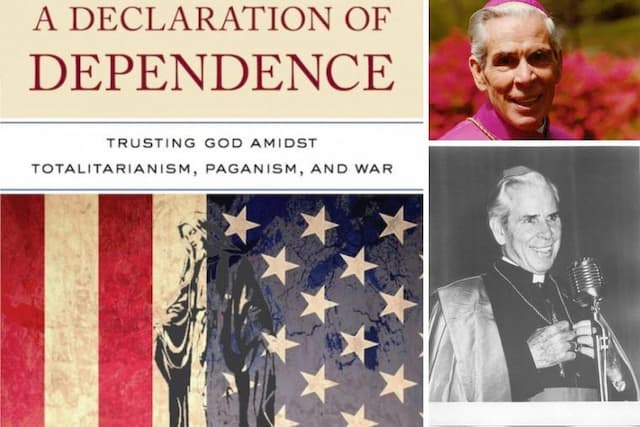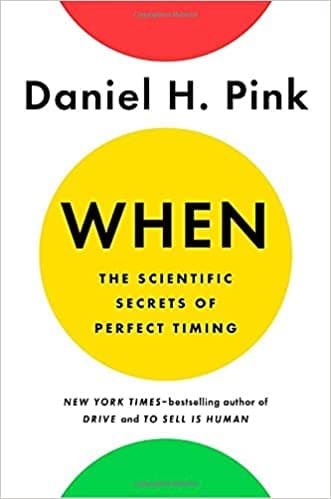I Have No Human Enemies: Don't Demonize the Powerful - Lin Wilder

I have no human enemies
“As a disciple of Jesus, I have no human enemies. As a disciple of Jesus, I am not allowed to have any human enemies. I might be theirs. They are not mine. They are just rebels. I have often in my life been a rebel. So have you. And you got won. And you probably got won by kindness, by someone who took the time to listen, by someone who took the time to care, by someone who might have provoked us to ask tough questions. But they did it in such a way that we weren’t condemned. We were not yelled at…”
It’s worth repeating Fr. John Riccardo’s advice as we close in on this fall’s election: The Enemy is the Enemy.
To ponder, share and practice the truths of the priest’s words.
“First, as Christians, as disciples of Jesus, the Eternal Son of God who became flesh to redeem the world from the power of Hell, it is paramount that we remember and understand who the enemy is. The enemy is the Enemy. Period.”
While with family a couple of weeks ago, I allowed myself to get pulled into judgement and acrimony during the after dinner conversation. I spouted off about public persons and complex situations that I know next to nothing about.
I know better. l have written before about the dangers of the untamed tongue.
But that didn’t stop me.
The minute I think I’ve got a bad habit—aka sin—like gossip and passing judgement, licked, back comes an opportunity to do it all again, this time with gusto.
It can be overwhelming, even depressing as I think of the ease with which I fall.
More on that momentarily.
Sometimes, there’s unmistakable “coincidence.”
Especially when striving to practice prudence, temperance, humilty—all the antidotes of sin. When Don’t Demonize—or Divinize—the Powerful showed up in my inbox, it felt like more than a nudge.
Maybe a shove: Listen!
Bishop Barron begins his sermon for last Sunday talking about Nietzsche.
Ummm, Frederich Nietzsche: “The God is Dead, he choked to death on theology” Nietzsche?
Yes, that Nietzsche.
How is a nineteenth-century-atheist sufficiently relevant to warrant a Bishop Barron sermon?
If I weren’t working on my newest novel, Plausible Liars, I’d wonder too. But in a strange coincidence, I too am engrossed in understandng ‘how we got here,’ so that a primary character’s investigative journalism piece on transgenderism titled [Creating Chemical Eunuchs: Androgynizing America’s Children] will be coherent. We’re tempted to think this all begin with the “sexual revolution” of the sixties, right?
But no, those of us who were kids in the sixties were merely continuing what had begun a couple of centuries before.
We’ve got to go back to the nineteenth century to understand how such radically destructive ideologies could be categorized as “woke” and become endemic in our culture and institutions. Precisely why Bishop Barron starts with Nietzsche in explaining why “woke” ideology—demonizing power— is incompatible with Catholic social teaching.
The readings from Amos and St. Paul’s Letter to Timothy are the springboards for this intruiging homily which highlights our obligation to pray—and be grateful for— for those in authority.
That we may lead a quiet and tranquil life
St. Paul’s language struck me [Pow!} when I heard the Lector read last Sunday.
“First of all, then, I ask that supplications, prayers, petitions, and thanksgivings be offered for everyone, for kings and for all in authority, that we may lead a quiet and tranquil life in all devotion and dignity. This is good and pleasing to God our savior, who wills everyone to be saved and to come to knowledge of the truth.”
Thanksgivings be offered for all in authority…not just prayers.
Ahem.
If I’d read and/or heard this passage before I’d not recalled it but it sure packs a whallop.
Or is it just me?
Bishop Barron’s discourse on why we never demonize power is arresting, even instructive during an era when many of us use power almost as an epithet. Especially his words, “Political power is a kind of participation in the power of God,” emanating from our belief that God is all-powerful. So how can power be bad?
St. Paul’s last sentence,”…this is good and pleasing to God…who wills everyone to be saved…” implies, suggests the bishop, that our own salvation depends on our carrying out this obligation. Bishop Barron packs this thirteen-minute sermon with a balanced but provocative look at power, authority and politics.
In very different ways, both Fr. Riccardo and Bishop Barron caution each of us. Certainly me. To be careful, prudent and seek His Good Counsel as we get closer and closer to what is already a mid-term election jam packed with controversy.
The ease with which I fall
In a recent piece, I wrote of a priceless piece of fifteenth-century wisdom, Spiritual Combat by Dom Lorenzo Scupoli. It’s just forty-six pages but I keep rereading the first ten because his advice is so:
- Simple.
- Practical.
- Pithy.
Like this on page four:
“Some, who judge by appearances, make it consist in penances, in hair shirts, austerities of
the flesh, vigils, fasting, and similar bodily mortifications. Others fancy themselves
extremely virtuous when they indulge in long periods of vocal prayers, hear several
Masses, spend many hours in church . . . Others, and this does not exclude some of the
religious who have consecrated themselves to God, think that perfection consist in perfect
attendance in choir, in observing silence and in a strict observance of their rule.
Consequently, different people place perfection in different practices. It is certain that
they all equally deceive themselves.”
“Without Me, you can do nothing.”
A couple of weeks ago, I wrote a piece on His statement. Our Lord doesn’t say we can’t do much without Him, but states that without Him we can do nothing:
I am the vine, you are the branches. Whoever remains in me and I in him will bear much fruit, because without me you can do nothing.
Jesus, I trust in you.
Yesterday morning I had the privilege of attending morning Mass at the Mission of Divine Mercy. Mass was followed by a talk on St. Faustina as Prophet by Brother Mikael.
He covered a vast territory in under an hour: Here are only a few of his points:
- The horrendous phsyical and psychological suffering of the young nun, Sr. Faustina.
- The trials of the Church a thousand years ago when its highest echelons were infested with pederasty and homosexuality.
- During the early nineteenth century, Warsaw, Poland was the only European city where abortion was legal—it was a “sanctuary” for abortion.
- After Pope Pius’ enthusiastic reception and support of Faustina’s writings ,two subsequent Popes declared them unapproved by the Church
- Followed by Pope John Paul ll’s lifelong cause of Divine Mercy, declaring the canonization of the Sister Faustina as the “happiest day of my life.”
The morning was perversely consoling in a number of ways. Primarily because my understanding that none of this evil is new has deepened. As has my conviction that we live during an extraordinary time of grace, when untold miracles of salvation are happening all around us.
Jesus. I trust in you.
Jesus, I trust in you.
Jesus, I trust in you.











